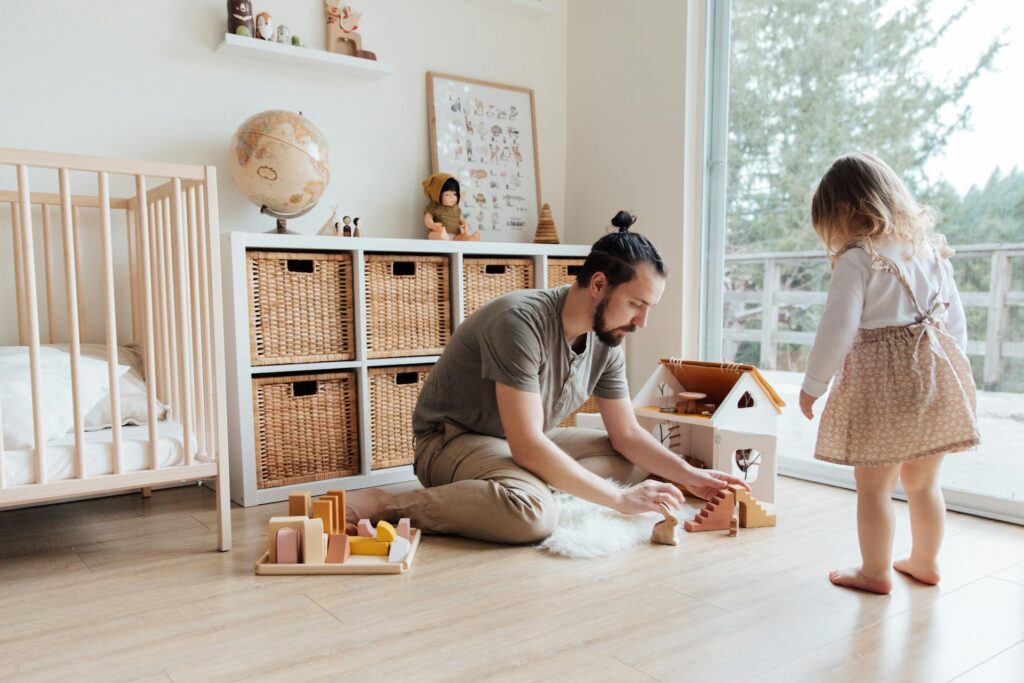Introduction: The Importance of Child Development
Child development in the early years is the foundation of a child’s future health, learning, and well-being. From birth to age five, children experience rapid growth that shapes who they will become. These early experiences influence how a child thinks, feels, and interacts with the world. By supporting child development during this critical stage, parents and caregivers set the stage for lifelong success.
Brain Development in the Early Years
The human brain grows faster during the first five years than at any other time in life. Over one million neural connections form every second, shaping memory, learning, and emotional responses.
-
Stimulating environments, play, and responsive caregiving boost brain development.
-
Reading to children, singing songs, and engaging in interactive play help strengthen neural pathways.

Social and Emotional Development: Building Healthy Relationships
Social and emotional skills are at the heart of child development. Children learn empathy, resilience, and self-regulation during these early years. These abilities prepare them for friendships, school life, and future relationships.
Ways to support social and emotional development:
-
Encourage cooperative play.
-
Teach children how to express feelings with words.
-
Model empathy and kindness at home.
Language and Communication Skills: The Foundation of Literacy
Language is one of the strongest predictors of academic success. In the first years, children absorb language quickly, learning new words and forming sentences.
-
Talking and reading daily builds vocabulary.
-
Storytelling, songs, and rhymes enhance listening skills.
-
Responsive conversations encourage confidence and communication.
Physical Development: Movement Builds Strength and Skills
Physical development includes both gross motor skills (running, jumping, climbing) and fine motor skills (drawing, buttoning clothes). Movement is essential for overall health and school readiness.
| Type of Skill | Examples | How to Support |
|---|---|---|
| Gross Motor Skills | Running, hopping, balancing | Outdoor play, obstacle courses |
| Fine Motor Skills | Writing, using scissors | Arts, puzzles, building blocks |
Cognitive Development: Building Thinking and Problem-Solving
Cognitive skills include memory, attention, problem-solving, and creativity. These are the building blocks of future learning.
-
Encourage exploration and curiosity.
-
Provide puzzles, sorting games, and building toys.
-
Ask open-ended questions like “What do you think will happen next?”
School Readiness: Preparing for Academic Success
Children with strong early development enter school ready to succeed. Early literacy, numeracy, and self-regulation skills support better outcomes.
Tips for school readiness:
-
Practice recognizing letters and numbers.
-
Teach routines, such as following instructions.
-
Encourage independence in daily tasks like dressing.

Long-Term Health and Well-being
Early childhood experiences have long-term effects on physical health, mental health, and success in adulthood. Studies show that positive early experiences lead to:
-
Better education outcomes.
-
Lower risk of chronic illness.
-
Stronger emotional resilience.
FAQs About Child Development
1. Why is child development important?
Because it shapes the foundation for learning, health, and social success throughout life.
2. How can parents support child development at home?
Through play, reading, responsive caregiving, healthy routines, and emotional support.
3. What happens if early child development is neglected?
It may result in delays in learning, communication, and social-emotional growth.
Media Suggestions
Photo ideas for blog post:
-
Parent reading to child (for brain & language development).
-
Children playing together outdoors (for social and physical development).
-
Baby holding parent’s hand (symbolizing growth and bonding).
-
Classroom or preschool activities (for school readiness).
Conclusion: Investing in the Future Through Child Development
The early years are the most powerful window of growth. By supporting child development through play, learning, and nurturing care, parents and caregivers give children the best start in life. Every moment counts—whether it’s reading a bedtime story, sharing a meal, or playing outside, these experiences build a stronger, healthier, and more successful future.
